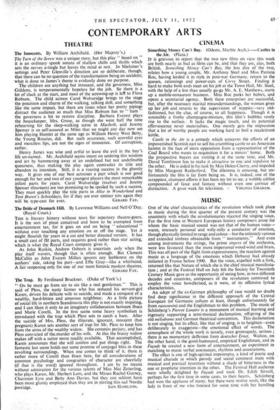The Trap. By Ferdinand Bruckner. (Duke of York's.) " ON
he must go from sin to sin like a real gentleman." This is said of Pless, the nasty farmer who has seduced his servant-girl Karen, driven his delicate wife to suicide, and made a conquest of a wealthy, hard-bitten and amorous neighbour. As a little picture of social life in northern Scandinavia this play is not exactly inspiring, and I can liken it only to an imaginary collaboration between Ibsen and Marie Corelli. In the first scene some heavy symbolism is introduced with the trap which Pless sets to catch a hare. After the suicide of Mrs. Pless, the illiterate, ignorant, innocent (but pregnant) Karen sets another sort of trap for Mr. Pless to keep him from the arms of the wealthy widow. She commits perjury, and has Pless convicted of the.murder of his wife. At this the brassy widow makes off with a suitor more readily available. That accomplished, Karen announces that she will confess and put things right. The fantastic last scene holds out some promise of conjugal bliss in these revolting surroundings. When one comes to think-of it, there is rather more of Corelli than Ibsen here, for all considerations of common psychology and congruities of character are cheerfully (if that is the word) ignored throughout. I am by no means without admiration for the various talents of Miss Mai Zetterling, who plays Karen, Mr. Herbert Lom, and the Misses Rachel Gurney, Charmian Eyre and Betty Ann Davies, but they can seldom have been more glumly employed than they are in stirring this sad Nordic







































 Previous page
Previous page